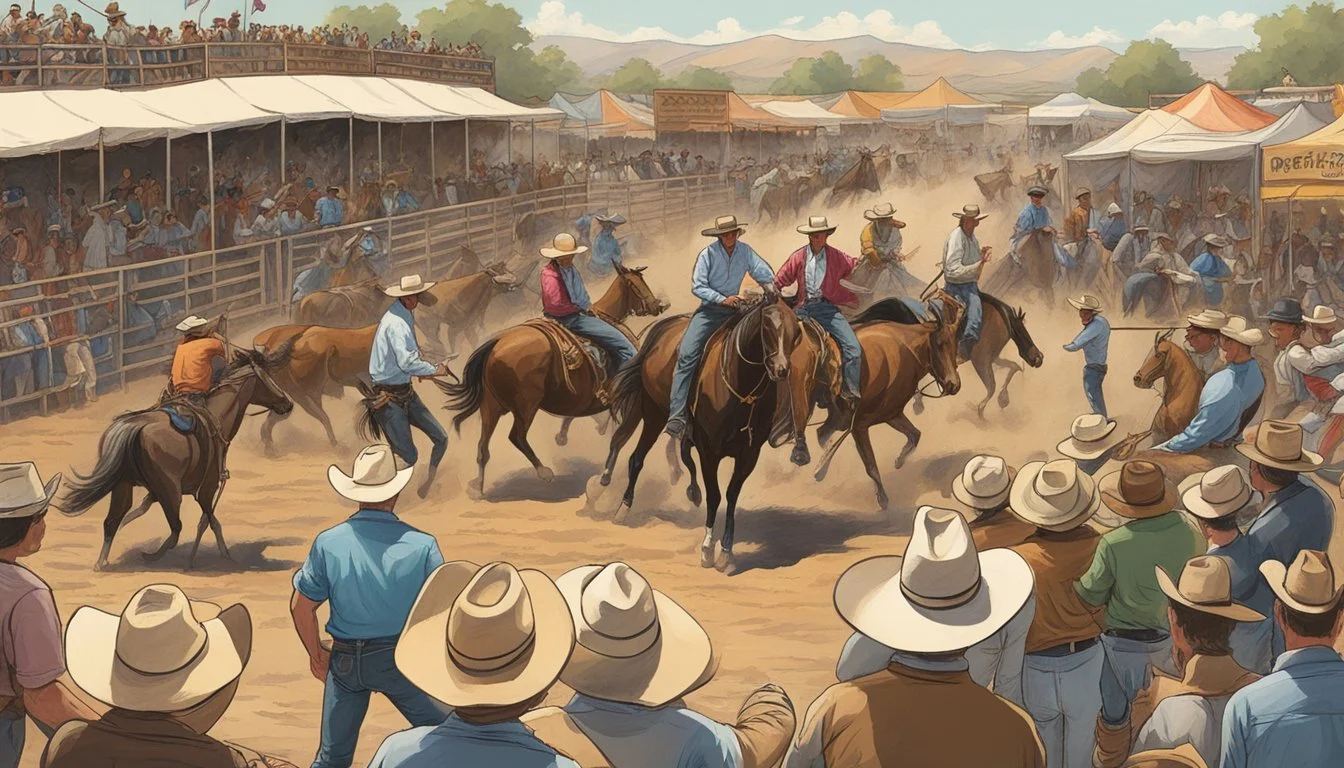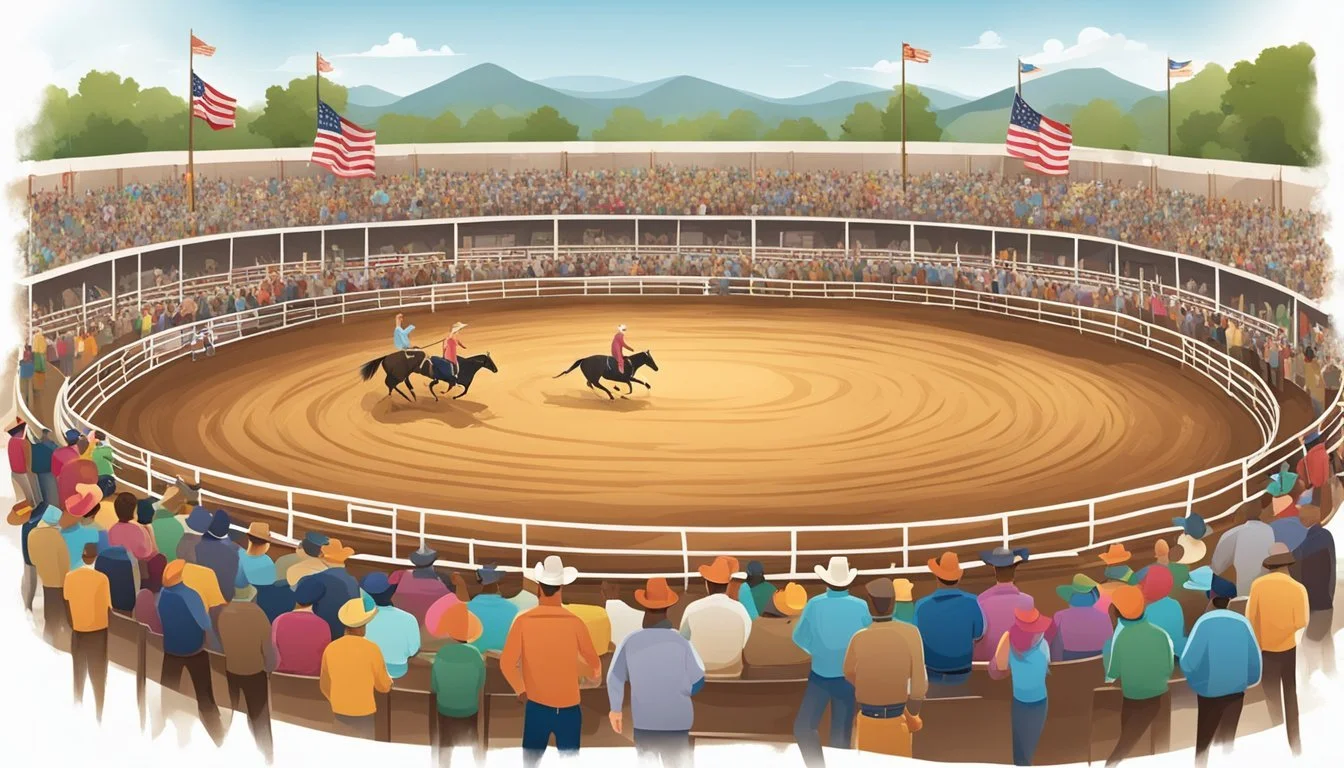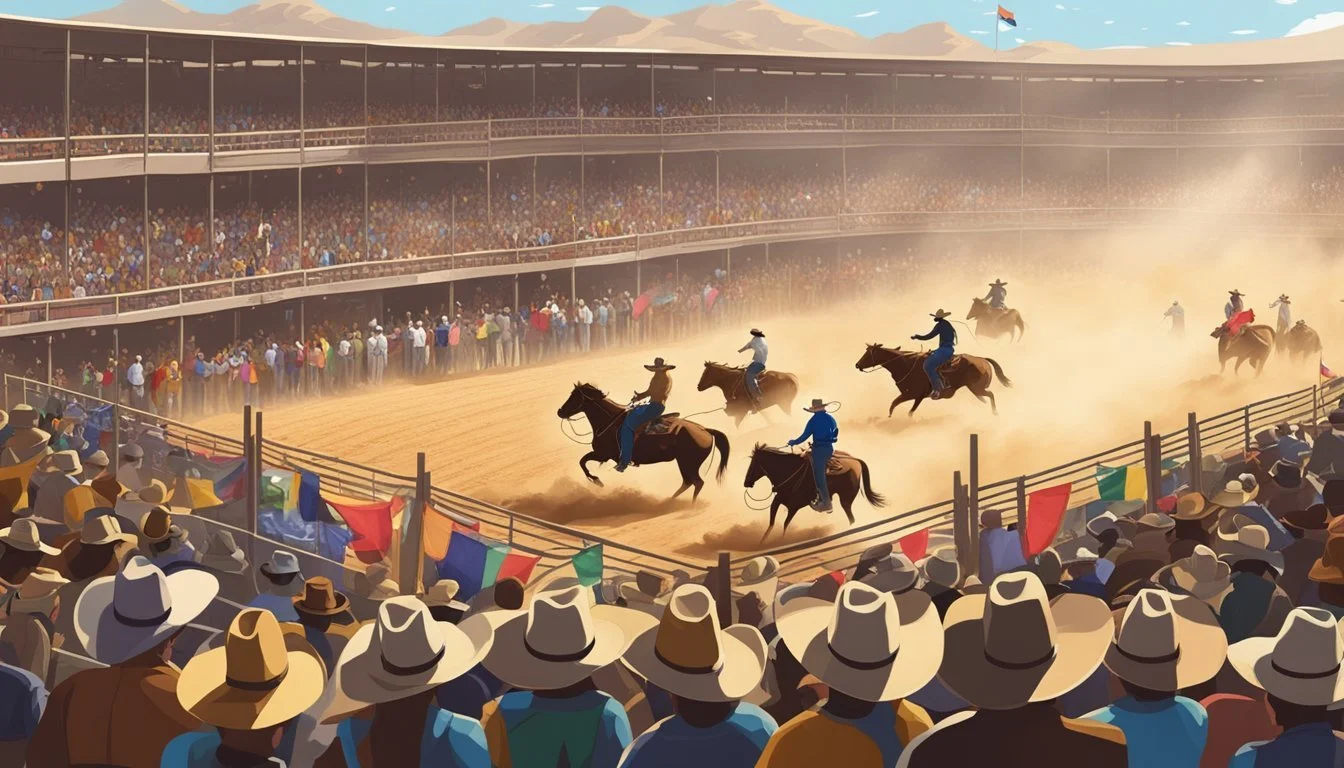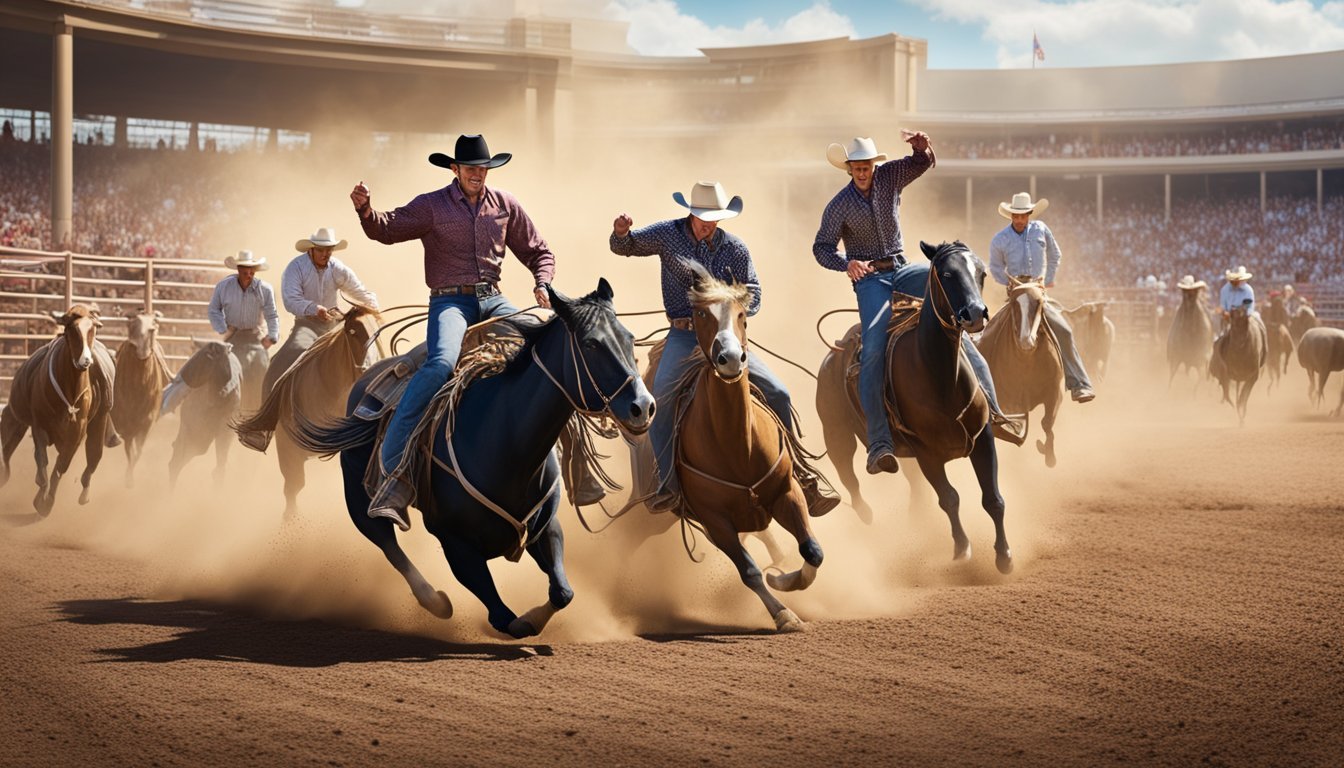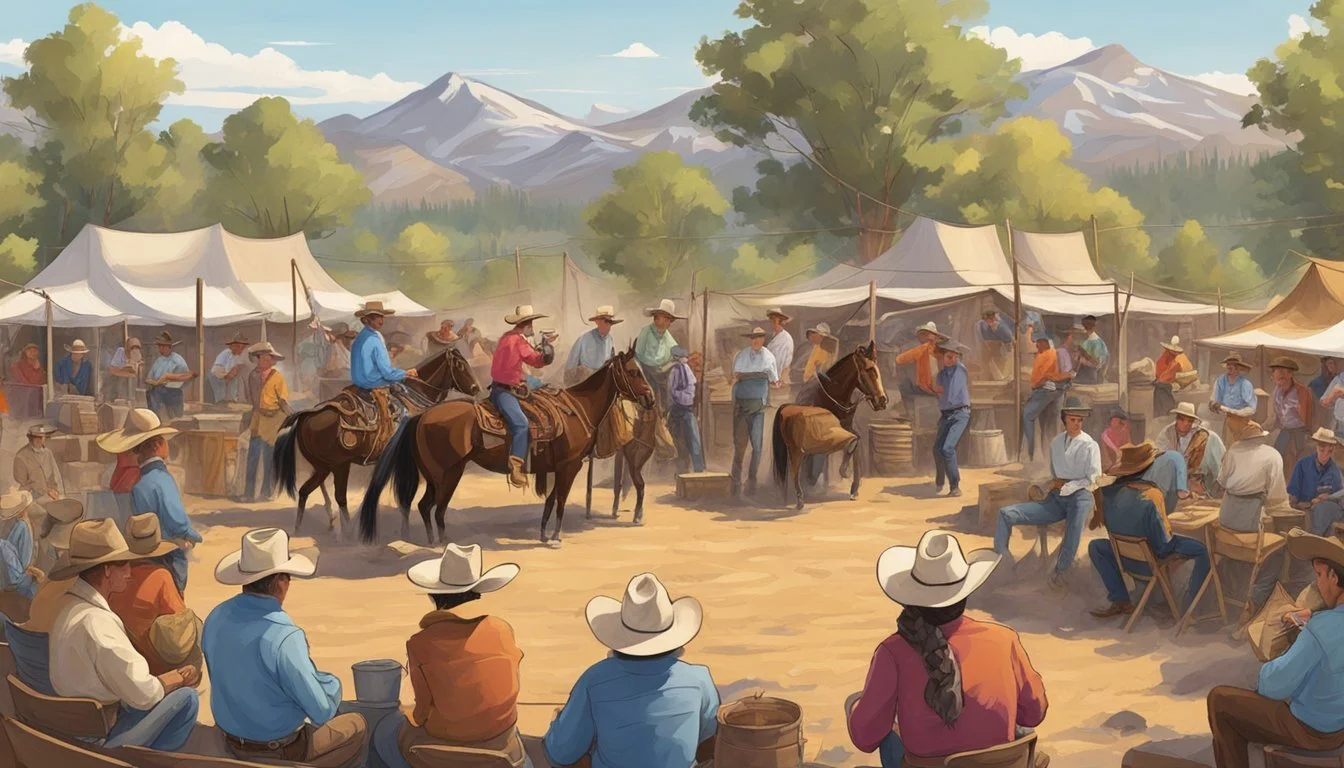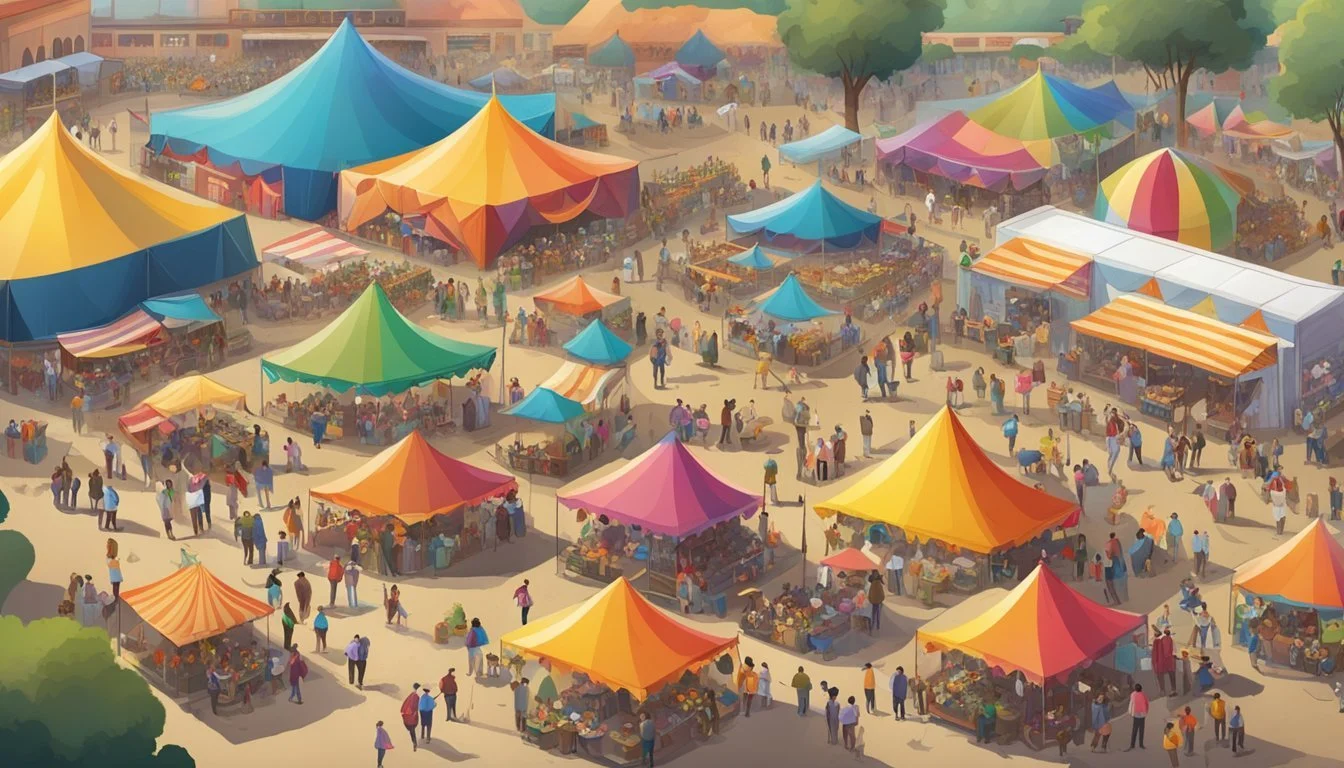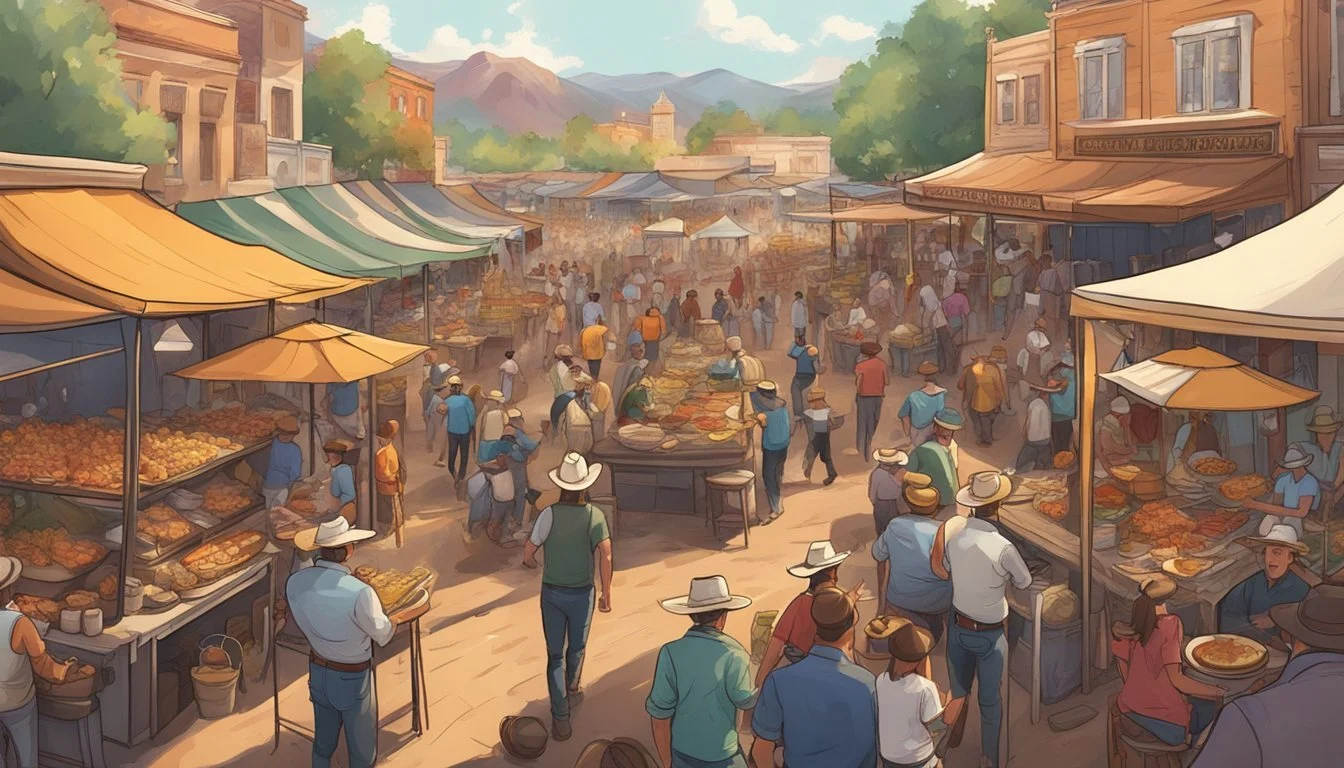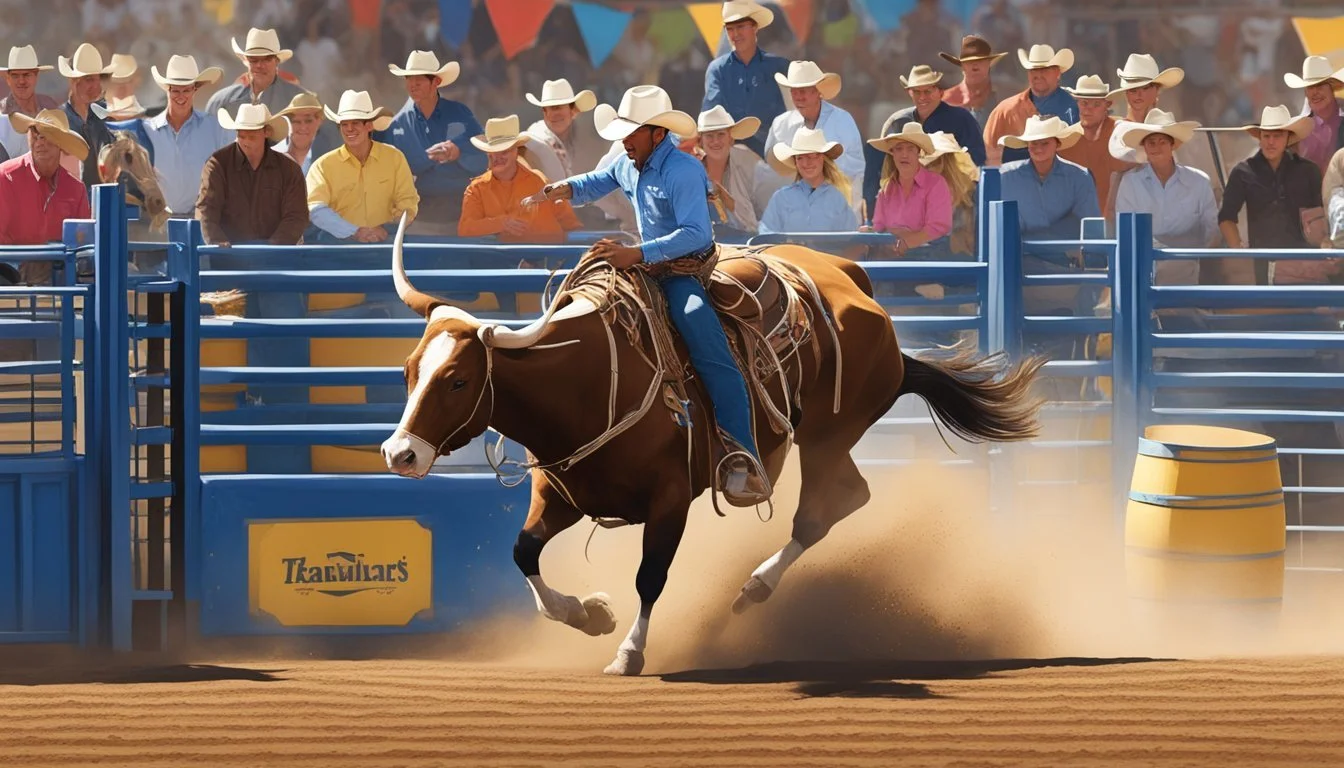The Best Cowboy Festivals and Competitions to Attend
Your Ultimate Guide
The allure of the American West continues to captivate audiences with its enduring legacy, cowboy culture, and the excitement of rodeo competitions. Across the United States, a variety of festivals and events celebrate this rich history, often combining the thrill of the rodeo with a showcase of Western traditions. From intricately choreographed parades to the heart-pounding action of bronco busting, these gatherings provide a glimpse into the skills and customs that shaped the Western frontier.
One such event is the World's Oldest Rodeo, held annually in Prescott, Arizona. Dating back to 1888, this historic occasion marks a pivotal moment in the rodeo's origin story, though it shares its claim with Pecos, Texas. Further north, the Cheyenne Frontier Days, known as the world's largest outdoor rodeo, offers ten days of non-stop excitement, encapsulating the spirit of the West with top-notch rodeo action and Western entertainment.
In addition to the well-known rodeos, other festivals like the Lincoln County Cowboy Symposium in Ruidoso invite attendees to immerse themselves in the living history of the cowboy way of life. Here, visitors can witness authentic chuck wagon competitions, where teams prepare traditional meals in an outdoor setting, proving that the festival's charm is as much about authenticity and community as it is about the competitions. With these events, enthusiasts and newcomers alike can experience the vibrant tapestry of cowboy culture that continues to be an integral part of America's heritage.
History of Cowboy Festivals and Competitions
Cowboy festivals and competitions have a storied history, deeply rooted in the Western heritage and cowboy culture that emerged from the day-to-day activities of cattle ranching.
Evolution of Rodeo Culture
Rodeo culture has its origins in the practices of Spanish vaqueros and the working routines of cattle herders in the American West. The first informal rodeo events were competitions among cowboys on different ranches, showcasing skills that were essential for their work, such as breaking wild horses and cattle roping. These gatherings were not only a test of a cowboy's skill but also a crucial part of maintaining the western lifestyle. As these gatherings became more organized, they evolved into the modern rodeo, a public celebration of cowboy talents involving various rodeo events.
Key Transition: The transition from informal challenges to structured entertainment was marked by the inclusion of spectators and the introduction of prizes.
Professionalization: The establishment of organizations like the Professional Rodeo Cowboys Association (PRCA) gave further legitimacy to the sport and solidified its rules.
Significant Historical Events
Significant events have shaped the trajectory of cowboy festivals and competitions.
Cheyenne Frontier Days: Started in 1897 in Cheyenne, Wyoming, it's one of the oldest and largest cowboy festivals, known as the "Daddy of 'em all."
National Finals Rodeo (NFR): Regarded as the premier championship of rodeo, it's held annually in December and gathers the top competitors from across the United States.
Day of the Cowboy: This event, which celebrates Western heritage, is designated to honor cowboys and cowgirls for their enduring contribution to enriching America's culture.
Through these competitions, the spirit and skills of the American cowboy are not only preserved but also celebrated, bringing together communities and sustaining a pivotal aspect of America's cultural mosaic.
Top Cowboy Festivals
Each year, a number of cowboy festivals celebrate the heritage and spirit of the Old West. These events bring together rodeo competition, live music, and cultural exhibitions, attracting attendees from local and regional areas.
Houston Livestock Show and Rodeo
The Houston Livestock Show and Rodeo is one of the largest and most prestigious rodeo events in the world. Taking place in Houston, Texas, it combines top-notch rodeo action with concerts and livestock shows. This event not only showcases elite rodeo athletes but also raises funds for educational scholarships.
Pendleton Round-Up
Pendleton Round-Up in Pendleton, Oregon, has a rich history dating back to 1910. It's known for its thrilling rodeo events, including bull riding, steer roping, and barrel racing. The festival honors both cowboy traditions and Native American culture, featuring a colorful parade and pageant.
Cheyenne Frontier Days
Cheyenne Frontier Days, hosted in Cheyenne, Wyoming, is referred to as the "World's Largest Outdoor Rodeo and Western Celebration." It features ten days of rodeo, concerts, and a grand parade. Attracting visitors from across the globe, it's a showcase of cowboy skills and a celebration of Western heritage.
Santa Clarita Cowboy Festival
The Santa Clarita Cowboy Festival in California offers a more intimate setting to experience the cowboy way of life. Known for its engaging musical performances and historical reenactments, the festival brings the spirit of the Wild West to life for visitors of all ages.
Can't-Miss Rodeo Competitions
For aficionados of cowboy culture and rodeo enthusiasts, there are a few events that stand as pillars of the sport. These competitions display the pinnacle of skill, courage, and tradition, attracting competitors and spectators from all over.
PRCA Rodeo Circuit
The Professional Rodeo Cowboys Association (PRCA) oversees a circuit of rodeos that includes some of the most competitive and eagerly anticipated events in the country. Contestants who reach the PRCA circuit have proved they have what it takes to compete at the highest levels, demonstrating mastery in events like bull riding, team roping, and steer wrestling.
Rodeo Austin
Held in March, Rodeo Austin is a highly esteemed event in the world of competitive rodeo. The rodeo not only offers a wide range of competitions, but also a stock show and fair to entertain visitors of all ages. Some of the best professional riders gather to compete for top honors in a city known for its unique blend of country and metropolitan vibes.
West of the Pecos Rodeo
West of the Pecos Rodeo claims the title of "Oldest Rodeo." This Texan event, held annually in Pecos, bridges traditional rodeo activities with modern competition. It is renowned for its historic significance and remains a seminal event where the efforts of cowboys are on full display, continuing a legacy that dates back to the late 1800s.
Wyatt Earp Days
Celebrating the legacy of the famed Old West lawman, Wyatt Earp Days bring together historical reenactments and competitive spirit. Held in Tombstone, Arizona, the event not only commemorates cowboy heritage through reenactments but also includes rodeo events where participants compete in an atmosphere charged with history.
Key Rodeo Events and Their Excitement
Rodeo festivals showcase a variety of high-octane events where cowboys and cowgirls demonstrate remarkable skill and courage. These key events are central to the appeal of any cowboy festival.
Bull Riding and Barrel Racing
Bull Riding: Arguably the most thrilling event, it exhibits courage as riders aim to stay atop a bucking bull for a full eight seconds. With the bull's unpredictable movements, a successful ride requires strength, balance, and quick reflexes.
Duration: 8 seconds for a qualified ride
Objective: Remain on the bull with one hand in the air
Scoring: Judged out of 100; factoring in control, technique, and the bull's difficulty
Barrel Racing: Exuding precision and speed, this event is where cowgirls navigate a cloverleaf pattern around preset barrels. Riders must display exceptional horsemanship to execute tight turns without knocking over any barrels, as penalties for doing so can cost them the race.
Key skills: Horse control, speed, and agility
Objective: Complete the pattern in the shortest amount of time
Penalties: Time added for each barrel knocked over
Steer Wrestling and Team Roping
Steer Wrestling: Strength and technique come to the forefront as competitors, also known as "bulldoggers," leap from their horses onto a steer and wrestle it to the ground. Timing, strength, and dexterity dictate their success in this gripping display of cowboy grit.
Objective: Wrestler must bring the steer to the ground by twisting its horns
Timeframe: Fastest times usually range between 3 to 5 seconds
Team Roping: This event emphasizes cooperation and timing as two riders, the "header" and "heeler," work together to catch a steer. The header first ensnares the steer by the horns or neck, and the heeler then lassos its hind legs, showcasing teamwork and roping prowess.
Roles: Header (lassos front of steer) and Heeler (lassos hind legs)
Objective: Both riders must rope the steer as quickly as possible
Scoring: Teams are penalized for infractions like roping only one leg
Cultural Aspects of Cowboy Gatherings
Cowboy gatherings are more than mere festivals; they are a celebration of the rich cultural heritage of the American West, showcasing traditional cowboy poetry, music, dance, and historical reenactments.
Cowboy Poetry and Storytelling
Cowboy poetry and storytelling are integral to these gatherings, conveying the hardships and joys of cowboy life. Poets and storytellers capture the imagination with tales of the open range, often reciting their works from memory, and preserving the oral traditions that have been passed down through generations.
Western Music and Dance
Western music and dance create a lively atmosphere at cowboy festivals. The sound of guitars, fiddles, and banjos fills the air, playing both classic and contemporary Western tunes. Attendees are treated to line dancing and two-stepping, emblematic of cowboy social gatherings, where novices and experts alike revel in the spirited steps of traditional Western dances.
Reenactments and Traditional Attire
Historical reenactments bring the Old West back to life, with participants donning traditional cowboy attire, from Stetsons to spurs. They recreate scenes of daily cowboy life and famous historical events, reinforcing the enduring cowboy spirit. These reenactments serve as living history lessons, offering insights into the skills and customs that defined the era.
Festival Attractions Beyond Rodeo
While rodeo competitions are at the heart of many cowboy festivals, these events often feature a variety of attractions catering to all ages and interests. These festivals provide a holistic cultural experience beyond the rodeo arena, offering entertainment, arts, and family-friendly activities.
Carnival Rides and Games
Nearly every cowboy festival includes a carnival with an array of rides suitable for thrill-seekers of all ages. From classic Ferris wheels to adrenaline-pumping roller coasters, these rides complement the festival atmosphere. Traditional carnival games also offer attendees a chance to test their skills and win prizes, adding to the fun and competitive spirit of the festival.
Art and Craft Exhibitions
Cowboy festivals often celebrate the rich artistic traditions of the West with art and craft exhibitions. These showcases typically feature works by local artisans and craftspeople, displaying everything from handmade jewelry to custom leatherwork. Visitors can appreciate the intricacy of Western art and even purchase unique pieces to take home.
Cowboy and Western-Themed Fairs
The fairs within cowboy festivals immerse attendees in Western culture through various interactive exhibits, historical reenactments, and educational displays. Participants have the opportunity to engage with the history of the American West, sample regional cuisines, and partake in traditional Western activities, such as square dancing or horseshoe pitching. These Western-themed fairs provide a deeper understanding of cowboy heritage and offer entertainment for the whole family.
The Culinary Experience
Cowboy festivals aren't just about the rodeos and music; they offer a rich culinary journey that showcases the unique flavors and traditions of the West. Attendees can look forward to a diverse range of food and beverages that embody the local culture.
Traditional Western Cuisine
At the heart of any cowboy festival is the authentic western cuisine that harkens back to the days of chuckwagon cooking. Festival-goers can enjoy a variety of dishes that combine beef, beans, corn, and spices – staple ingredients that provided sustenance to cowboys on the trail.
Beef: Smoked, grilled, or stewed, beef is a cornerstone of cowboy cuisine often served as brisket or steaks.
Beans: Prepared in pots over an open fire, beans are a traditional side, often flavored with bacon, chili, or molasses.
Corn: Versatile and hearty, corn appears as bread, in stews, or grilled on the cob.
Spices: Bold flavors are achieved through a blend of native chili peppers and other spices, creating rich, deep flavors in dishes like chili and stews.
These elements combine to create a food experience that's deeply rooted in cowboy history and offers a taste of the past with every bite.
Local Food and Beverage Options
Local offerings at cowboy festivals extend beyond traditional dishes to include a range of beverages like beer and wine, crafted to reflect the local palate. Many festivals feature local breweries and vineyards, giving attendees a chance to sample regional flavors.
Beer:
Craft Breweries: Often showcased in tasting events
Ales & Lagers: Ranging from light and crisp to dark and rich
Wine:
Vineyard Selections: Local wines from neighboring vineyards
Varietals: Red, white, and rosé, catering to a spectrum of preferences
These local beverages complement the culinary experience, providing a perfect pairing for the robust flavors of cowboy cooking.
Planning Your Festival Visit
In attending cowboy festivals and competitions, timing and accommodation are instrumental for an optimal experience. Here's what to consider when you're planning your visit.
Best Time of Year to Attend
Most cowboy festivals and rodeos are scheduled during the warmer months, with August standing out as a particularly vibrant period for cowboy culture enthusiasts. Texas, known for its deep-rooted cowboy traditions, plays host to numerous events during this time, including the legendary Texas Rodeo. Attendees can expect an authentic cowboy festival atmosphere, complete with thrilling rodeo competitions and western festivities.
Key Festivals by Month:
July: Celebrate the Day of the Cowboy in California with a focus on Western heritage.
August: Peak season for Texas with its rodeos presenting a quintessential cowboy experience.
September: South Dakota's Buffalo Roundup and Arts Festival offers a unique western event even after summer.
Accommodations and Travel Tips
When traveling to a cowboy festival, especially those in popular locales like Texas, it's crucial to book accommodations well in advance. Lodgings near festival venues fill up quickly due to high demand. Considering local options such as guest ranches can enhance the cultural experience. For convenient travel, renting a car might be advisable given the typically rural locations of these events.
Travel Checklist:
Book Early: Secure accommodations months in advance.
Transportation: Rent a vehicle for easier travel to and from event sites.
Local Culture: Opt for guest ranches for a full cowboy lifestyle immersion.
By focusing on the best time of year to attend and preparing for your travel and stay, your visit to a cowboy festival or competition can be an unforgettable immersion into Western tradition.
Unique Regional Cowboy Festivals
The vibrancy and diversity of cowboy culture are celebrated at various festivals across regions in the United States. Each festival showcases unique aspects of regional cowboy traditions and history, making them must-visit events for enthusiasts and the curious alike.
Bishop Mule Days in California
Location: Bishop, California
Dates: End of May
Highlights:
Celebrates the contributions of mules in Western heritage
Features over 700 mules competing in 181 events
Every year in Bishop, California, Bishop Mule Days celebrates the historical and ongoing contributions of mules in American West culture. Attendees can witness a striking variety of events, from pack mule races to western art shows, embracing the local cultural significance of these animals.
Mesquite Championship Rodeo in Texas
Location: Mesquite, Texas
Dates: Every Friday and Saturday night from June through August
Highlights:
Offers traditional rodeo competitions
Known for its family-friendly atmosphere and cowboy-themed activities
In Mesquite, Texas, the Mesquite Championship Rodeo stands as a testament to Texas's deep-rooted rodeo culture. Visitors can expect to see classic rodeo competitions including bull riding and barrel racing. This rodeo captivates its audience with a blend of cowboy athleticism and regional flair.
Pueblo's Wild Wild West Fest
Location: Pueblo, Colorado
Dates: Typically held in May
Highlights:
Hosts Professional Bull Riders events
Infuses local heritage and entertainment
Pueblo's Wild Wild West Fest merges the cultural events of the West with thrilling bull riding competitions. As a part of Pueblo's community fabric, this event incorporates the spirit of the West with activities that pay homage to the city's cowboy roots and cultural history.
Additional Entertainment and Activities
Cowboy festivals and competitions are not just about rodeos and cowboy hats; they offer a wide array of entertainment and activities that cater to various interests.
Live Music Performances
At the heart of cowboy festivals, one can often find a vibrant selection of live music performances. These events typically showcase a range of genres including bluegrass and folk, featuring both local talents and renowned performers. Visitors can expect an energetic atmosphere where the spirit of the West is celebrated through song.
Car Shows and Parades
For automotive enthusiasts, many cowboy festivals integrate car shows and parades. These exhibitions often display vintage cars, with some events like Viva Las Vegas celebrating over 20 years of rockabilly music and culture alongside an impressive collection of classic automobiles.
Educational Workshops and Exhibits
Cowboy festivals also provide interactive educational workshops and exhibits. Attendees have the chance to learn about different aspects of cowboy life and Western heritage. Workshops might include skills such as roping and trail riding, offering a hands-on experience for participants of all ages.

